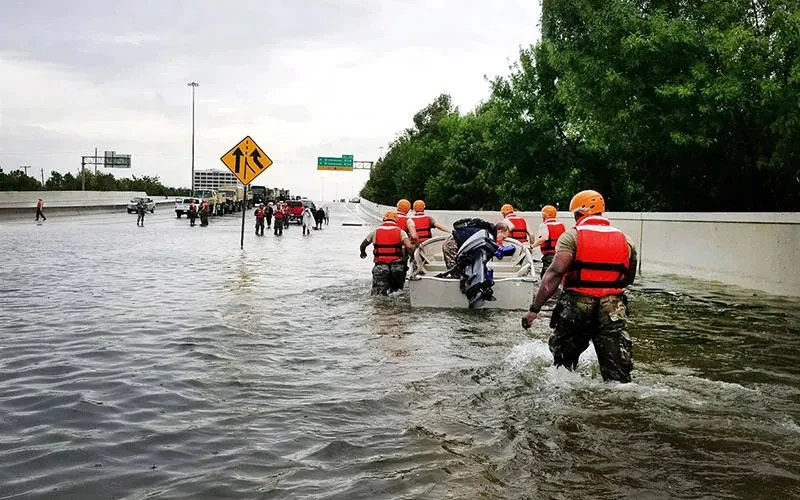There is no question that the horrific events from Hurricane Harvey in Texas and the devastating losses to people, animals and property is first and foremost on our minds. Our hearts go out to all of those who have suffered an insurmountable loss – one that we have barely begun to comprehend and quantify in loss of life, morbidity and long-range physical, emotional and economic consequences.
In some areas, as the rescues continue to bring people and pets into shelters and short-term housing, we are left with more questions than answers. But one thing is absolutely certain. We know that flood water is filled with contaminants and living organisms that pose a serious risk to health.
Flood waters from rivers, bayous and reservoirs pose serious health risks due to contamination of the water supply. According to Boomberg BNA, a primary environmental problem facing officials in Texas is the widespread contamination of drinking water. This is more of a concern in rural areas where the power supply and pumps are likely to malfunction. The resulting loss of pressure in these pumps produces serious contamination issues per Lara Zent, head of the Texas Rural Waster Association.
Another source of major contamination is related to wastewater backups. In these hardest hit regions of Texas, wastewater treatment plants are located in the low-lying areas to make use of gravitation flow of water. Unfortunately, the tremendous load exceeds their capacity, allowing untreated raw sewage to flow directly into Texas waterways. Over time, these will contaminate the Gulf of Mexico.
Dr. Marc Siegel, an Internal Medicine Physician on staff with Fox News identifies many psychological and physical problems that victims of Harvey are just beginning to experience. Among the psychological effects of this trauma include grief, fear, anxiety, depression and PTSD. One of the most prevalent physical effects are related to infection from bacterial, viral, and fungal contaminants. Other physical problems come from lack of food, drinking water and prescription medications.
Impact of Harvey on Texas Hospital Emergency Rooms
Houston Hospital Emergency Departments were also battered by Harvey’s winds and unrelenting flood waters. In the initial period of the hurricane, 10-15 hospitals and nursing homes in the Houston area were evacuated. But most hospitals continue to operate.
There is no question that in the days, weeks, and many months ahead, the devastating effects of Harvey will take its toll on the staff and practice operations within hospital emergency departments and urgent care centers. Staggering numbers of patients are presenting for care around the clock and those numbers will skyrocket from physical and emotional causes. Even those who are insured, have no documents. Many have lost everything, are indigent without healthcare but in need of urgent treatment. The management of healthcare services in light of these extreme conditions presents significant challenges for hospital emergency departments.
Here’s Where We Can Help
Our company, 360 Medical Billing Solutions, can be a resource to assist Texas Emergency Departments, Freestanding ERs, and urgent care centers. Texas is one of our primary areas of service for specialty emergency medical billing and consulting services. We provide streamlined strategies for practice operations and billing that will automate many processes and greatly reduce stress related to billing and practice management – even in these extreme conditions. Contact us now to request a free consultation.







